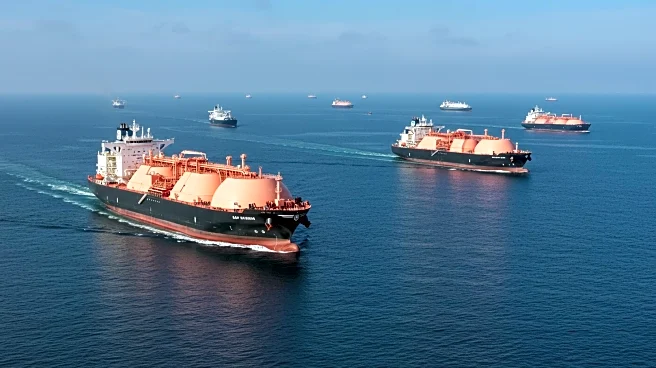What's Happening?
Asian countries, including Japan and South Korea, are increasing their imports of U.S. liquefied natural gas (LNG) as part of trade agreements with President Trump. Japan has committed to a 'major expansion' of energy purchases, while South Korea has agreed to buy $100 billion worth of energy products from the U.S. The increase in LNG imports is expected to reach 3.61 million tons in October, marking a significant rise from previous months. These agreements are part of broader trade deals involving import tariffs and investment commitments.
Why It's Important?
The increase in U.S. LNG exports to Asia is a strategic move to strengthen trade relations and reduce trade imbalances. For the U.S., this expansion supports the domestic energy sector by opening new markets and increasing export volumes. For Asian countries, diversifying energy sources can enhance energy security and potentially reduce reliance on traditional suppliers like Australia and Qatar. However, the ambitious import targets may disrupt existing trade flows and affect global LNG pricing, as countries adjust their sourcing strategies.
What's Next?
As the U.S. continues to expand its LNG export capacity, further increases in exports to Asia are anticipated. This could lead to shifts in global energy trade dynamics, with potential impacts on pricing and supply chains. Asian countries may need to renegotiate existing contracts with other suppliers to accommodate increased U.S. imports. Additionally, the success of these trade deals may influence future negotiations between the U.S. and other regions seeking to balance trade relations.












